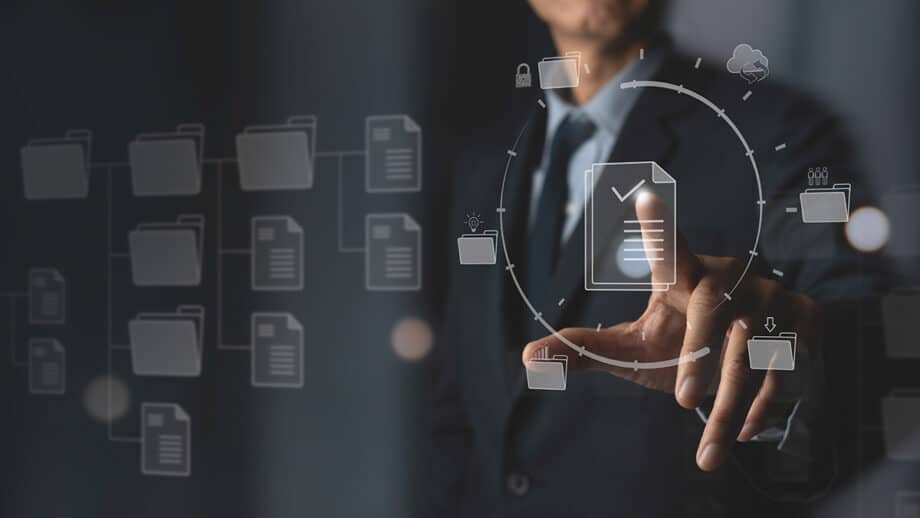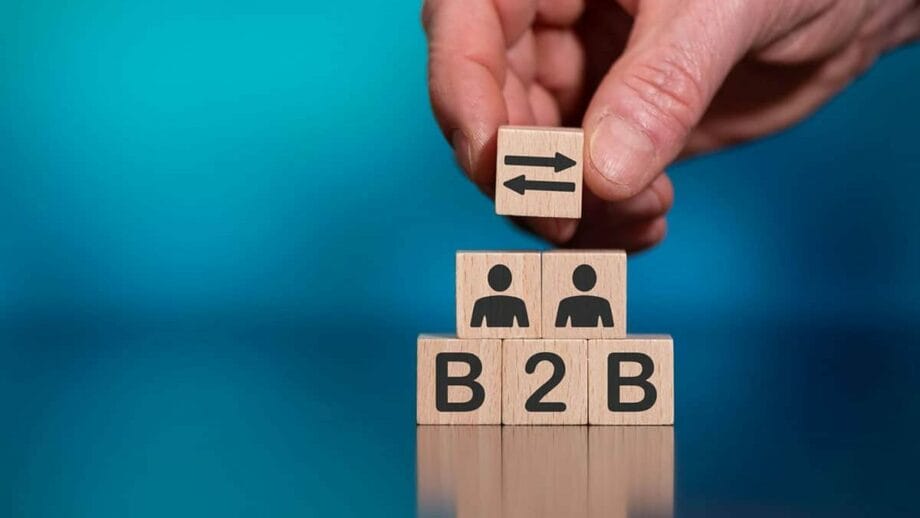There are too many memes debunking the myths around marketing automation in a hilarious way and shedding light on how it works.
Business owners often think that marketing automation is about automating “everything” and then relaxing as they keep getting a steady flow of income. That isn’t how it works.
So, What is Marketing Automation All About?

Marketing automation is the use of software platforms and technologies that automate repetitive marketing tasks and workflows. So, businesses can nurture prospects with personalized content aimed at converting them into customers.
For B2B companies with longer sales cycles and multiple decision-makers, marketing automation provides the structure and consistency needed to manage complex customer journeys. Competitive bottlenecks have compelled B2B companies to optimize their marketing efforts while delivering personalized experiences to prospects and customers. Marketing automation has turned out to be that critical solution, enabling businesses to streamline processes, improve efficiency, and drive meaningful engagement across the buyer’s journey.
“As technology advances, marketing automation no longer feels like science fiction. It’s now the competitive edge that separates industry leaders from followers.”Pew Research Center
The silver lining is that B2B marketing automation has become increasingly sophisticated and easy to implement, all thanks to technological advancements. Organizations that strategically implement and continuously optimize their marketing automation are gaining significant competitive advantages in their ability to identify, engage, and convert prospects into loyal customers.
Unlike B2C marketing automation, which often focuses on driving immediate purchases, B2B marketing automation emphasizes relationship building, education, and long-term engagement across multiple touchpoints and stakeholders.
According to a report, marketing automation is expected to touch USD 10.54 billion in 2029. It translates to a CAGR of 9.1%.
Through this article, we shall talk about the benefits of marketing automation for B2B companies and the key trends shaping it in 2025 and beyond.
Core Benefits of Marketing Automation for B2B Companies

Now that you are well-versed with what marketing automation is, let’s discuss the advantages of implementing it in a B2B setup.
1. Enhanced Lead Generation and Management
Marketing automation transforms how B2B companies identify, nurture, and convert leads.
- Lead Scoring and Qualification: Automated systems check the demographic information, online behavior, and engagement levels of leads and accordingly assign scores to them. Hence, it empowers sales teams to prioritize their efforts on the most promising prospects.
- Progressive Profiling: Rather than overwhelming prospects with lengthy forms, marketing automation facilitates the gradual collection of information across multiple interactions, improving conversion rates while building comprehensive prospect profiles.
- Behavior-Based Segmentation: Automation tools let marketers segment audiences by tracking their past interactions, interests, and engagement patterns rather than just basic demographic data.
- Multi-touch Attribution: As you track the entire customer journey, you can ascertain the channels and content pieces bringing in maximum conversions. Thus, it allows for more strategic resource allocation.
2. Operational Efficiency and Productivity Gains
Implementing marketing automation delivers crucial operational benefits:
- Task Automation: Routine tasks such as email sends, social media posting, and lead assignment can be automated, reducing manual workload by up to 80% according to recent industry studies.
- Centralized Marketing Operations: Modern platforms work as a central hub to manage campaigns, analyze data, and distribute content. They eliminate silos and improve cross-functional visibility.
- Resource Optimization: Marketing teams can accomplish more with existing resources, with studies showing a productivity increase of 14.5% following the implementation of comprehensive automation solutions.
- Standardized Processes: Automation helps formulate consistent workflows and approval processes, reducing errors and ensuring brand compliance across all marketing activities.

3. Improved Sales and Marketing Alignment
One of the most vital challenges in B2B organizations is the alignment between sales and marketing teams. Marketing automation helps bridge this gap by:
- Creating Shared Visibility: Both teams gain access to unified dashboards showing prospect activities, engagement levels, and position in the sales funnel.
- Establishing Clear Hand-Off Processes: Automated lead scoring and qualification criteria create objective standards for when leads should transition from marketing nurture to sales outreach.
- Enabling Closed-Loop Reporting: Automation platforms can track leads from first touch to closed deal, providing valuable feedback to marketing on which initiatives generate revenue.
- Supporting Account-Based Marketing: For B2B companies leveraging ABM strategies, automation tools enable coordinated multi-channel engagement with key accounts identified by both marketing and sales.
“When sales and marketing see the same story, every lead becomes a real opportunity. Give your teams one view, and watch trust – and results – grow.”Salesforce
4. Data-Driven Decision Making
Marketing automation furnishes the analytics infrastructure needed for informed decision-making:
- Comprehensive Performance Metrics: Whether it is email open rates or content engagement and conversion metrics, automation platforms give you access to robust analytics that go beyond basic vanity metrics.
- Predictive Analytics: Advanced systems utilize historical data to forecast outcomes, identify trends, and recommend optimizations before problems occur.
- ROI Measurement: By connecting marketing activities to pipeline and revenue generation, automation helps marketing leaders demonstrate value and justify investments.
- Continuous Optimization: A/B testing capabilities allow for ongoing refinement of messaging, designs, and campaign structures based on real performance data.
5. Enhanced Customer Experience and Personalization
B2B buyers increasingly expect the same level of personalization they experience as consumers:
- Dynamic Content Delivery: Automation enables the delivery of tailored content based on industry, role, company size, stage in the buying process, and previous interactions.
- Triggered Communications: Behavior-triggered email sequences and notifications ensure timely, relevant communication when prospects show buying signals or engagement.
- Cross-Channel Consistency: Modern automation platforms coordinate messaging across email, social, web, advertising, and even direct mail channels for a cohesive experience.
- Customer Journey Mapping: Visualization and analysis of the entire customer journey highlight opportunities to improve experiences at critical touchpoints.
Key Trends Shaping Up B2B Marketing Automation in 2025 and Beyond

As customer expectations are constantly changing, it is imperative to adapt to the dynamic landscape and introduce new engagement tactics. The top 7 trends shaping B2B marketing automation in view of this significant transformation are:
1. AI and Machine Learning Integration
Artificial intelligence is revolutionizing marketing automation capabilities:
- Predictive Lead Scoring: AI algorithms analyze thousands of data points to predict which leads are most likely to convert, moving beyond traditional rule-based scoring. For instance, B2B software company Drift implemented predictive lead scoring that analyzes website interaction patterns, email engagement, and company news to identify accounts most likely to purchase in the next 30 days. Their automated system triggers different outreach campaigns based on buying intent signals, resulting in 37% higher conversion rates.
- Content Recommendations: Machine learning systems can suggest the most relevant content for specific prospects based on their behavior and characteristics, similar to consumer recommendation engines. Brands like Amazon and Netflix have mastered this strategy, and gradually, B2B giants are also getting the hang of this trend.
- Send-Time Optimization: AI determines the optimal time to deliver communications to individual recipients based on their past engagement patterns.
- Natural Language Processing: Advanced platforms can analyze prospect communications and social media content to identify sentiment, topics of interest, and buying signals.
2. Intent Data Utilization
The integration of third-party intent data with marketing automation represents a significant advancement:
- Early-Stage Identification: B2B companies can now identify prospects actively researching relevant solutions before they complete a form or engage directly with the company.
- Trigger-Based Outreach: When intent signals indicate active buying behavior, automation systems can initiate appropriate outreach sequences.
- Competitive Intelligence: Intent data can reveal when prospects are researching competitors, allowing for timely, differentiated messaging.
- Account Prioritization: By monitoring buying signals across entire organizations, marketing teams can focus resources on accounts demonstrating the strongest purchase intent.
“Not all leads are equal, and intent data draws the map. By tracking interest across whole companies, marketers can focus on the accounts ready to take action, making every effort count.”SurveyVista
3. Conversational Marketing and Chatbots
Real-time engagement is becoming a critical component of B2B marketing automation:
- Intelligent Chatbots: AI-powered chatbots reduce the lead response time and give you an edge over the competitors. They create immediate engagement opportunities by qualifying leads, answering questions, and scheduling meetings 24×7.
- Conversation Routing: According to qualification criteria and inquiry type, automation systems can seamlessly transfer conversations to appropriate human representatives.
- Chat-to-Email Integration: Conversations started via chat can transition to email nurture sequences, maintaining continuity in the relationship.
- Conversational Intelligence: Analytics derived from chat interactions provide insights into common questions, objections, and interest areas.

4. Customer Data Platforms (CDPs) and Integration
The future of marketing automation centers on comprehensive data utilization:
- Unified Customer View: CDPs integrated with marketing automation create a single source of truth for all customer data, including transactions, support interactions, and marketing engagement.
- Cross-System Orchestration: Modern automation extends beyond marketing to connect with CRM, customer success, and e-commerce systems for truly coordinated customer experiences.
- Real-Time Data Activation: Instead of periodic batch processing, leading platforms now enable instantaneous data utilization for time-sensitive marketing activities.
- Custom Integration Capabilities: API-first platforms allow for seamless connection with specialized tools, creating tailored marketing technology ecosystems.
5. Privacy-First Approaches
In response to regulatory changes and growing privacy concerns:
- Consent Management: Advanced marketing automation platforms feature powerful consent tracking capabilities to ensure compliance with CCPA, GDPR, and other regulations.
- First-Party Data Strategies: With third-party cookies disappearing, automation systems are evolving to help companies collect and activate proprietary data.
- Progressive Disclosure: Rather than collecting all possible information upfront, systems are designed to gradually build customer profiles based on value exchanges.
- Transparency Controls: Leading platforms provide customers with visibility into the data being collected and how it’s being used, building trust through transparency.
6. Account-Based Marketing Automation
ABM strategies are becoming more sophisticated through automation:
- Account Scoring: Beyond individual lead scoring, systems now evaluate engagement across entire target accounts to prioritize coordinated outreach.
- Multi-Contact Orchestration: Automation warrants effective communication with different stakeholders within the same organization, acknowledging their different roles in the decision process.
- Account-Based Advertising: Integration between marketing automation and advertising platforms enables precise ad targeting to specific accounts and buying committees.
- Account Journey Analytics: Comprehensive reporting shows how entire accounts progress through the buying journey, not just individual leads.
“Speak to every voice that matters – automate your message so each decision maker feels seen. Build trust with the whole team, and your offer will shine brighter than the rest.”HubSpot
7. Interactive and Immersive Content
Content experiences are evolving beyond static assets:
- Interactive Assessments: Automated tools can deliver personalized recommendations based on prospect responses to assessment questions.
- Calculators and Configurators: Value calculators and solution configurators provide interactive experiences while capturing valuable prospect data. For instance, if you are into B2B financial services, you can create an interactive ROI calculator for your clients so that they can check their overall savings and profitability.
- Virtual Events Integration: Marketing automation now extends to webinar and virtual event platforms, tracking attendance and engagement to inform follow-up strategies.
- Augmented Reality Experiences: Cutting-edge B2B companies are beginning to incorporate AR into their marketing automation strategy, particularly for product visualization.
Implementation Best Practices

To maximize the benefits of marketing automation, B2B organizations should consider these implementation approaches:
Strategic Planning
- Begin with clear business objectives rather than focusing on features.
- Map existing processes before attempting to automate them.
- Establish concrete KPIs to measure success.
- Secure cross-functional buy-in, particularly from sales leadership.
Data Management
- Conduct a comprehensive data audit before implementation.
- Establish data governance protocols and ownership.
- Create a data cleansing and maintenance schedule.
- Define integration requirements across systems.
Change Management
- Provide comprehensive training for marketing team members.
- Create documentation for standard processes and use cases.
- Start with pilot projects before full-scale implementation.
- Celebrate early wins to build organizational momentum.
Continuous Optimization
- Schedule regular performance reviews of automated programs.
- Test and iterate on key elements like email cadence and content.
- Stay current with platform updates and new capabilities.
- Benchmark performance against industry standards.
Conclusion

Marketing automation has evolved from a nice-to-have technology to an essential component of successful B2B marketing strategies. The benefits extend far beyond operational efficiency, enabling more personalized customer experiences, better alignment between sales and marketing, and data-driven decision-making that drives business growth.
For B2B marketing leaders, the question is no longer whether to invest in marketing automation, but how to leverage these powerful tools to create distinctive customer experiences while driving measurable business outcomes.






